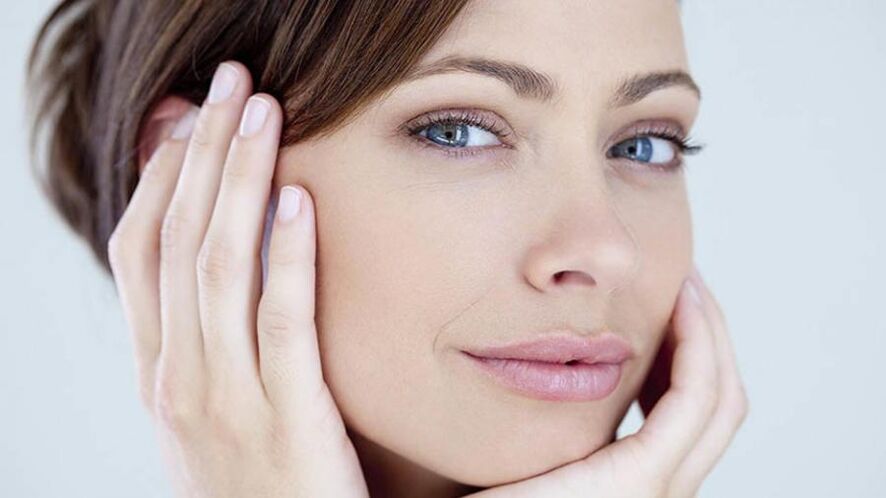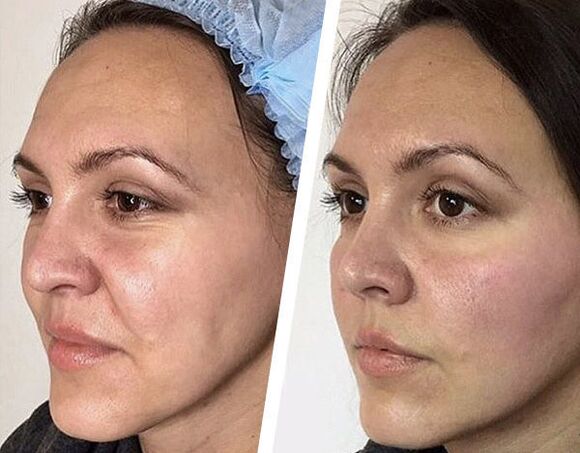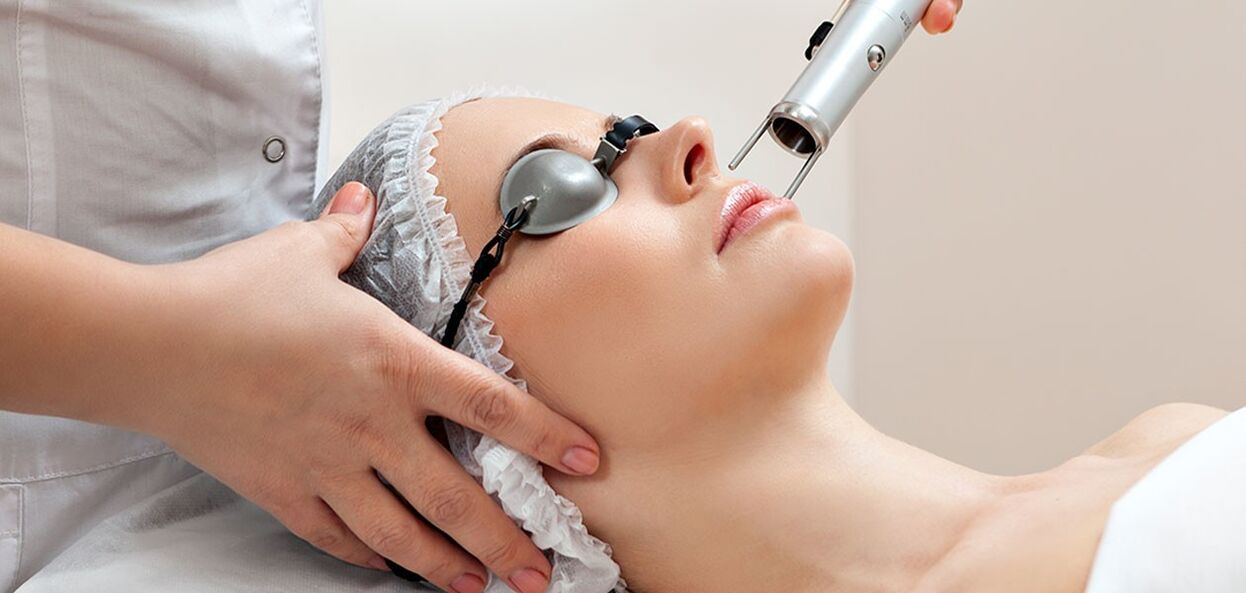
Skin rejuvenation is a series of cosmetic procedures aimed at improving the external condition of the skin of the face, neck and décolleté, as well as a general therapeutic effect that slows down the aging process.
Injection procedures for skin rejuvenation
The most popular skin rejuvenation procedures are biorevitalization and mesotherapy. Both methods have a pronounced healing effect, which directly affects the condition of the skin.
Biorevitalization is deep skin hydration by replenishing the lack of hyaluronic acid. Its task is to moisturize the skin as much as possible and start the process of cell regeneration.
Often people do not pay attention to the first signs of dehydration of the skin - this is tightening, peeling and dryness, and they turn to specialists for correcting the consequences that have appeared: increased fat content, wrinkles and sagging facial tissues. Biorevitalization can eliminate the problem of lack of moisture for 4-6 months.
This happens as follows: the beautician performs a series of subcutaneous injections, transporting hyaluronic acid into the deep layers of the epidermis. There it is gradually absorbed, moisturizing the skin, activating self-healing processes and stimulating the production of collagen and elastin.
The preparation contains both pure hyaluronic acid and additions of nutrients and vitamins.
After the biorevitalization procedure, the skin becomes noticeably more hydrated and radiant, fine wrinkles are smoothed out.

The main indications for biorevitalization
- Dryness, dehydration, itching, decreased elasticity of the skin;
- Fine mesh wrinkles ("baked apple" type of aging);
- Dull complexion and pigmentation due to negative factors: smoking, ultraviolet radiation, unfavorable environmental conditions;
- Increased oily skin (excessive activity of the sebaceous glands - the result of insufficient skin moisture) and acne;
- The need to recover from mechanical damage (laser resurfacing, plastic surgery).
Contraindications to biorevitalization
- Pregnancy and lactation;
- Infectious diseases and ARVI, herpes;
- Immune system disorders;
- Benign or malignant neoplasms on the epidermis;
- Purulent inflammation of the skin at the site of the procedure;
- The tendency to form keloid scars on the skin.
What is the difference between biorevitalization and mesotherapy procedures?
Mesotherapy has a wider field of application. The work takes place with the middle layers of the skin. Preparations for mesotherapy, in comparison with biorevitalizants, are distinguished by a lower content of hyaluronic acid, which is compensated by various useful additives: plant extracts, vitamins, minerals. Often the composition of the cocktail is selected separately, depending on the individual characteristics of the organism.
Indications for mesotherapy may vary. The main goal is to eliminate cosmetic defects and improve skin health.
The main indications for mesotherapy
- Prevention of aging and skin improvement;
- Expression, linear and deep wrinkles;
- Dryness, dehydration, swelling of the skin;
- Enlarged pores, oily skin, acne, post-acne and comedones;
- Uneven complexion
- Dark circles under the eyes;
- Age spots, hyperpigmentation;
- Spider veins (rosacea);
- Loose skin, slight deformation of the oval of the face;
- Preparation and restoration of the skin after surgery.

Contraindications to mesotherapy
- Pregnancy and lactation;
- Infectious diseases and ARVI, herpes;
- Cardiovascular disease, renal failure;
- Tendency to form keloid scars;
- Allergic reaction and individual intolerance to the components.
It is possible to carry out biorevitalization and mesotherapy procedures in non-injection techniques using a laser or an automatic injector. However, their use does not provide the same high efficiency as with manual work. The use of devices is recommended if there are contraindications to injections.
Hardware procedures for skin rejuvenation
Hardware procedures for skin rejuvenation include laser resurfacing and laser peeling (fractional photothermolysis, when a laser split into many beams acts on the skin in a point).
Laser peeling is a relatively new phenomenon in cosmetology. Its main difference from chemical peeling is that it allows you to selectively remove wrinkles, acne scars, minor irregularities from the skin surface, removing only damaged and dead cells. The procedure stimulates the process of skin regeneration - in response to microdestruction by the laser, it begins to intensively produce collagen and elastin, triggering the mechanism of self-rejuvenation. The skin is evenly renewed and leveled, the oval of the face is tightened.
The advantage of laser peeling is a short recovery period.

Laser resurfacing is much more traumatic - the laser removes the top layer of the skin, which triggers the strongest regenerative process of collagen and elastin production. This procedure gives the most noticeable result from hardware rejuvenation. The process is fully controlled and surpasses chemical peels in terms of safety and effectiveness.
Indications for hardware skin rejuvenation procedures
- Deep wrinkles, creases, folds;
- Decreased skin firmness and elasticity;
- Dark spots;
- Enlarged pores, oily skin, acne, post-acne;
- Scars and scars;
- Ptosis of facial tissues I-II degree.
Contraindications to hardware skin rejuvenation procedures
- Pregnancy and lactation;
- Allergic reactions;
- Infectious diseases and ARVI, herpes, immunodeficiency;
- Poor scar healing and tendency to form keloids.
In terms of efficiency, laser resurfacing is compared to a surgical operation.
After recovery, the skin is visibly tightened, the appearance improves, and pigmentation disappears. The optimal time for the procedure is the autumn-winter period.
Professional treatments for skin rejuvenation
Salon face care is much more effective than home care, since the cosmetologist selects programs taking into account the individual characteristics and problems of the client, and professional products have a higher concentration of active substances.
Professional treatments for skin rejuvenation may include the following treatments:
- Face cleaning;
- Masks: cleansing, moisturizing, nourishing, anti-aging, etc. ;
- Massages (lymphatic drainage, modeling, anti-stress, etc. );
- Physiotherapy (electrophoresis, phonophoresis, etc. );
- Therapeutic and prophylactic, seasonal and express treatments, consolidation and support of the result from invasive procedures, maintaining an acceptable skin condition in the intervals between courses.
Also, an experienced beautician will help you choose a line of products for home skin care.




























